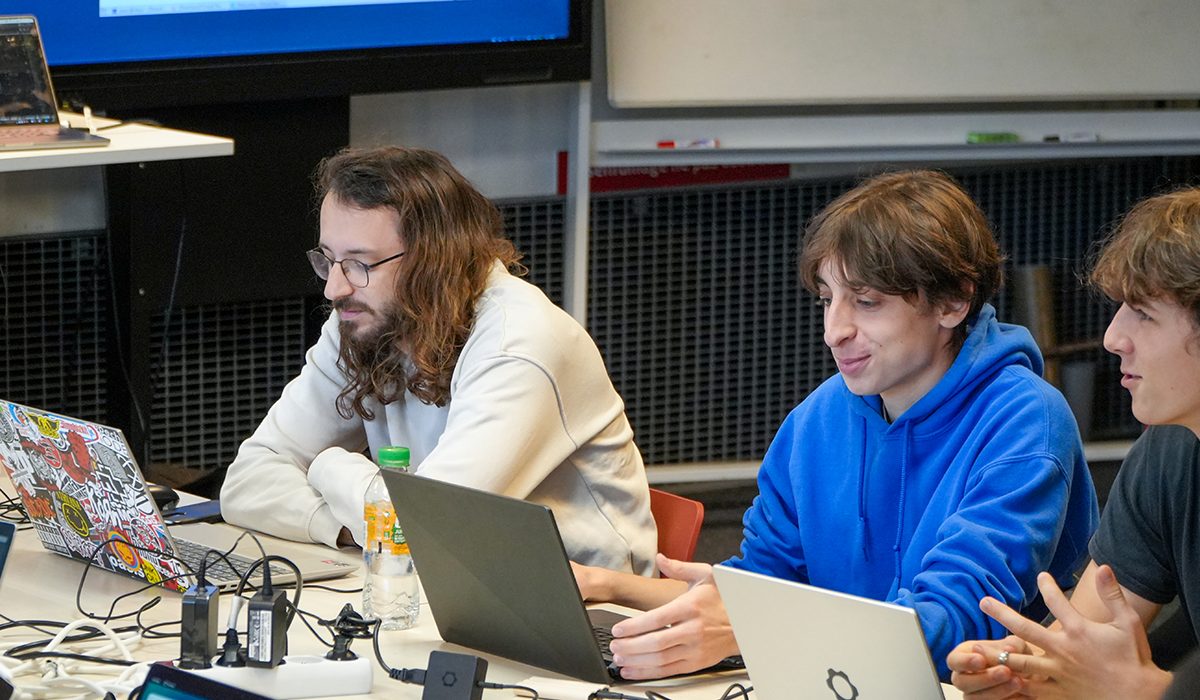As technology continues to evolve, the engineering landscape is transforming. From artificial intelligence to sustainable innovation, emerging fields are reshaping industries and creating exciting new opportunities for the engineers of tomorrow. For students considering their future career paths, choosing the right specialization is their most significant choice yet.
Certain engineering fields are expected to be in high demand in 2025, and this post explores why these specializations matter and how they will shape the future.
Artificial Intelligence and Robotics
The Heart of Technological Revolution Artificial Intelligence (AI) and robotics have moved beyond theoretical concepts and are now integral to healthcare and manufacturing industries. AI is revolutionizing everything from machine learning to autonomous systems, while robotics is advancing industrial automation and human-robot interaction.
Why it matters
AI and robotics are driving the Fourth Industrial Revolution, and their applications are expanding daily. Engineers who specialize in AI and robotics are in high demand and positioned to lead the technological advancements of the future. As industries automate more processes, professionals with expertise in this field will play critical roles in creating intelligent systems that improve efficiency and productivity.
ESiLV’s Software Engineering & AI specialization prepares students to build intelligent systems and understand the algorithms that power AI. With hands-on experience in AI tools and techniques, students will be ready to tackle real-world challenges in industries that rely on automation and smart technology.
Renewable Energy: Powering the Future
With climate change’s growing urgency, renewable energy is a top priority for governments, companies, and engineers alike. Solar, wind, hydro, and other sustainable energy sources are becoming mainstream, offering engineers countless opportunities to innovate and create cleaner, more efficient energy systems.
Why it matters
The future of energy is renewable. Engineers specializing in renewable energy will be at the forefront of designing systems that reduce carbon footprints and ensure a sustainable future. With governments worldwide investing in green energy infrastructure, this field offers immense potential for career growth and impactful work.
Eco-design and Sustainable Innovation: A Necessity for a Greener Planet
With increasing environmental concerns, eco-design and sustainable innovation are no longer just buzzwords—they are essential for every industry aiming to reduce its ecological footprint. Engineers in this field focus on designing products, processes, and systems that are not only efficient but also environmentally responsible.
Why it matters
The global push for sustainability means industries are searching for engineers to develop eco-friendly technologies and design sustainable solutions. This specialization helps engineers play a pivotal role in addressing climate change and promoting responsible consumption and production practices.
The newly launched Eco-design and Sustainable Innovation master’s program empowers students to lead sustainable initiatives and create designs that minimize environmental impact. Students will learn how to innovate responsibly, from circular economies to life-cycle assessments.
Software Engineering & AI: The Backbone of Digital Transformation
In a digital-first world, software engineering has never been more crucial. Whether it’s building scalable apps, developing AI-driven software, or enhancing cybersecurity, software engineers are in high demand across all industries.
Why it matters
The digital economy is booming, and companies need skilled software engineers to develop secure, scalable, and innovative solutions. With AI being integrated into almost every sector, engineers specialising in software engineering and AI are vital for building the next generation of intelligent systems. The Software Engineering & AI program at ESiLV trains students in the latest coding practices, AI algorithms, and digital tools needed to thrive in software development and artificial intelligence.
Sustainable Manufacturing: Leading the Future of Production
Sustainable manufacturing integrates green technologies into production, aiming to minimize environmental damage while optimizing resources. This specialization focuses on creating efficient, sustainable, and scalable processes.
Why it matters
As industries shift toward more sustainable operations, the demand for engineers with expertise in sustainable manufacturing is rising. Engineers who integrate eco-friendly practices into manufacturing processes will reduce waste, optimise energy use, and promote sustainability across supply chains.
Moreover, the Sustainable Manufacturing specialization at ESiLV equips students with the skills to create environmentally conscious production systems. From lean manufacturing principles to sustainable materials, students will gain a holistic understanding of making manufacturing greener and more efficient.
Finally, if you’re ready to take your engineering career to the next level, explore how ESiLV’s cutting-edge programs can equip you with the skills needed for the future. Discover how these specializations can position you for a successful career in 2025 and beyond.
Learn more about ESiLV’s latest engineering programs and how they can help you lead in the fields that matter most!






